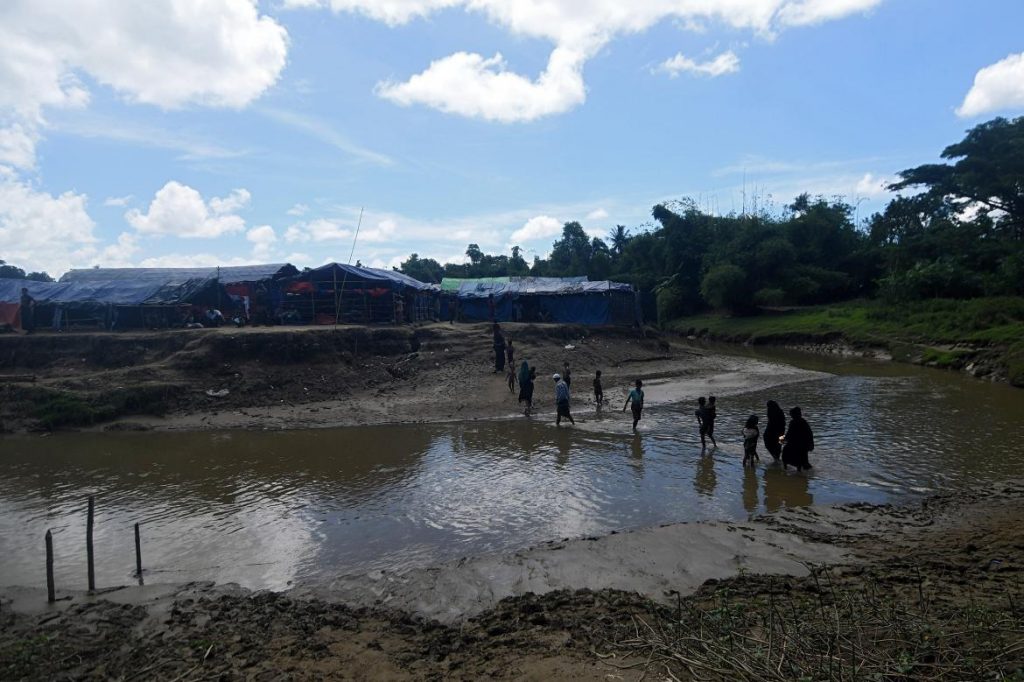By AFP
GENEVA — Myanmar’s “systematic” crackdown on the Rohingya has been designed to permanently eliminate the minority Muslim community from their home in Rakhine State, the United Nations said Wednesday.
“Brutal attacks against Rohingya in northern Rakhine State have been well-organised, coordinated and systematic, with the intent of not only driving the population out of Myanmar but preventing them from returning to their homes,” a UN investigation found.
The probe is based on interviews with people who fled to neighbouring Bangladesh since attacks by militants on security forces in Rakhine on August 25, which sparked a major military backlash.
More than half a million people have fled in the latest exodus, according to the UN.
Support more independent journalism like this. Sign up to be a Frontier member.
The UN probe found that the latest wave of military “clearance operations” in Rakhine in fact began before August 25, possibly in early August, contradicting claims by Myanmar that the crackdown was a response to militant strikes.
Myanmar has consistently denied that its security forces committed human rights abuses during the crackdown.
The investigation broadly outlines an army-led campaign to erase the Rohingya’s connection to their homeland in the majority Buddhist nation, where they have suffered persecution for decades.
“In some cases, before and during the attacks, megaphones were used to announce: ‘You do not belong here – go to Bangladesh. If you do not leave, we will torch your houses and kill you’,” the UN said.
Teachers as well as cultural, religious and community leaders have also been targeted in the latest crackdown “in an effort to diminish Rohingya history, culture and knowledge”, the report said.
“Efforts were taken to effectively erase signs of memorable landmarks in the geography of the Rohingya landscape and memory in such a way that a return to their lands would yield nothing but a desolate and unrecognisable terrain,” it added.
The findings were based on interviews with Rohingya who arrived in Bangladesh between September 14 and 24.
The UN team said it spoke to hundreds of people in 65 interviews, some with individuals and some with groups as large as 40.
UN human rights chief Zeid Ra’ad Al Hussein, has previously described the crackdown as “a textbook example of ethnic cleansing.”







